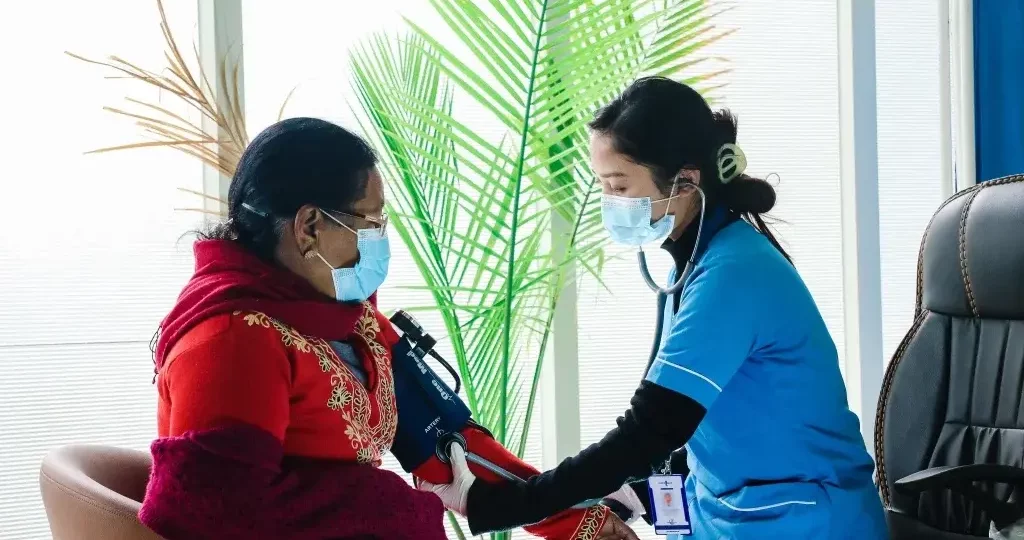
Support for Maintaining Public Health
Support for Maintaining Public Health – Health services are all efforts made to maintain and improve health, as well as prevent and treat diseases in the community. Within the framework of the country’s basic regulations, every Indonesian citizen has the right to obtain safe, quality, and affordable health services. Every individual or community group has the right to independently and responsibly determine the health service actions that are considered important to them.
Support for Maintaining Public Health

roskapital – This policy is the basis for the health industry in Indonesia to actively develop a sustainable health service system. The goal is for the community to gradually increase awareness of health, improve expectations of health services, and encourage innovation in health care and infrastructure.
In this article, we will explore and understand more deeply about the concept of health services in Indonesia. Our focus is on improving the quality of services and clinical care for patients in various health facilities, such as hospitals, clinics, health centers, health centers, independent doctor’s practices, and health laboratories.
Definition of Health Services
Simply put, health services can be interpreted as a concept used to provide basic and specialist medical services to the community. The goal is to maintain and improve health status through various efforts, such as prevention, diagnosis, therapy, recovery, and healing of diseases, injuries, and physical and mental disorders.
If we explain in more detail, health services include all efforts made individually or collectively in an organization to provide promotive services (maintaining and improving health), preventive services (preventing and treating diseases), and restoring the health of individuals, families, groups, or the community as a whole.
Read Also : Contoh Pidato Singkat tentang Tahun Baru dan Semangat Baru
Health services are managed professionally by health workers and supporting staff, such as general practitioners, specialist doctors, nurses, midwives, pharmacists, environmental health officers, and their assistants. The provision of health services has several limitations, including:
1. Independent Business: Services that can be done personally at a health service location, such as an independent midwife practice.
2. Institutional Business: Services provided by health institutions or organizations, for example at health centers or integrated health centers.
3. Clear Objectives: Each provider has a service product with the main objective of improving the health of the community.
4. Scope of the Program: The service program includes activities for maintaining, improving, restoring health, preventing, and curing diseases, both individually and collectively.
5. Service Targets: Each type of service has different targets, which can be aimed at individuals, families, groups, or society as a whole.
Types of Health Services in Indonesia
Based on the explanation above, health services can generally be divided into two main categories: medical services and public health services. Here is a further explanation of both.
1. Medical Services: These services are carried out individually or in groups within a health organization. The main goal is to cure diseases and restore the health of patients and their families.
The following is a rewrite of the text you provided in a more refined style:
Read Also : Understanding Complicated Diseases
The main characteristics of medical services that distinguish them from types of public services can be explained as follows:
1. Implementing Personnel: Doctors, both general practitioners, specialist doctors, and limited subspecialists, act as the main implementing personnel in health services.
2. Main Focus: These services are oriented towards curing diseases and restoring the health of patients.
3. Service Target: The main target of this service is the individual patient or his/her family.
4. Service Efficiency: Sometimes, lack of attention to service efficiency can be a deficiency in the provision of this service.
5. Code of Ethics: The service activities carried out must not attract the attention of the wider public, in accordance with the code of ethics of the medical profession.
6. Legal Compliance: This service is carried out within the framework of individual functions and is bound by the country’s basic laws.
7. Income: Health service providers earn income from compensation.
8. Responsibility: They are only responsible for the patients being treated.
9. Competition: Health service providers do not have a monopoly on the provision of services, and they also compete with similar businesses.
10. Internal Leadership: This type of service may face various challenges related to internal leadership.
Realizing a More Integrated National Health Service Effort with TeraMedik
The explanation above provides a brief overview of the basic theory of health services in Indonesia. You can optimize all clinical service activities to be more practical and integrated by utilizing special management information applications or systems provided by TeraMedik. With the arrangement of this information system, each health facility has the opportunity to:
– Improve the quality and productivity of health service delivery.
– Provide more optimal basic and/or specialist medical services with better efficiency.
– Ensure the availability, quality, and access to health data that can be accounted for by medical personnel, including doctors, nurses, and midwives.
– Empower the community and health professional organizations in implementing the system.
